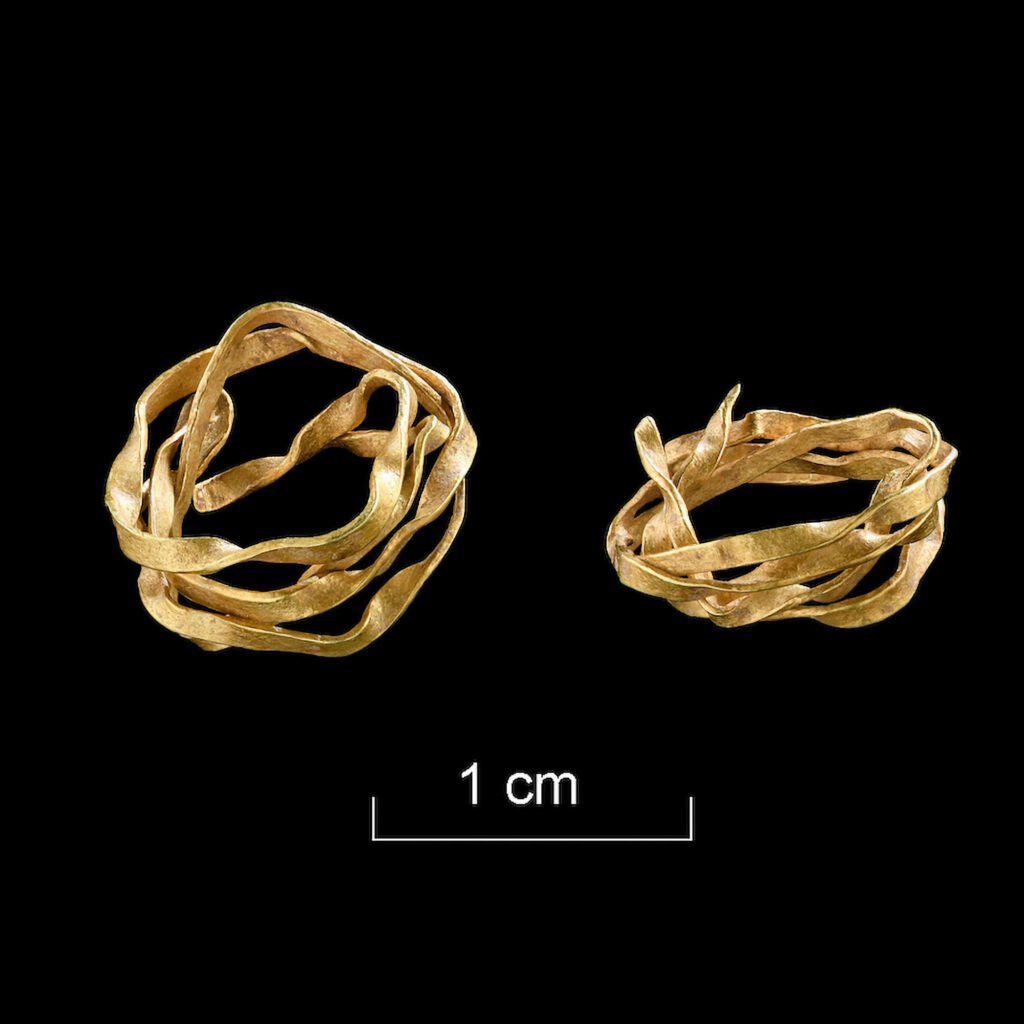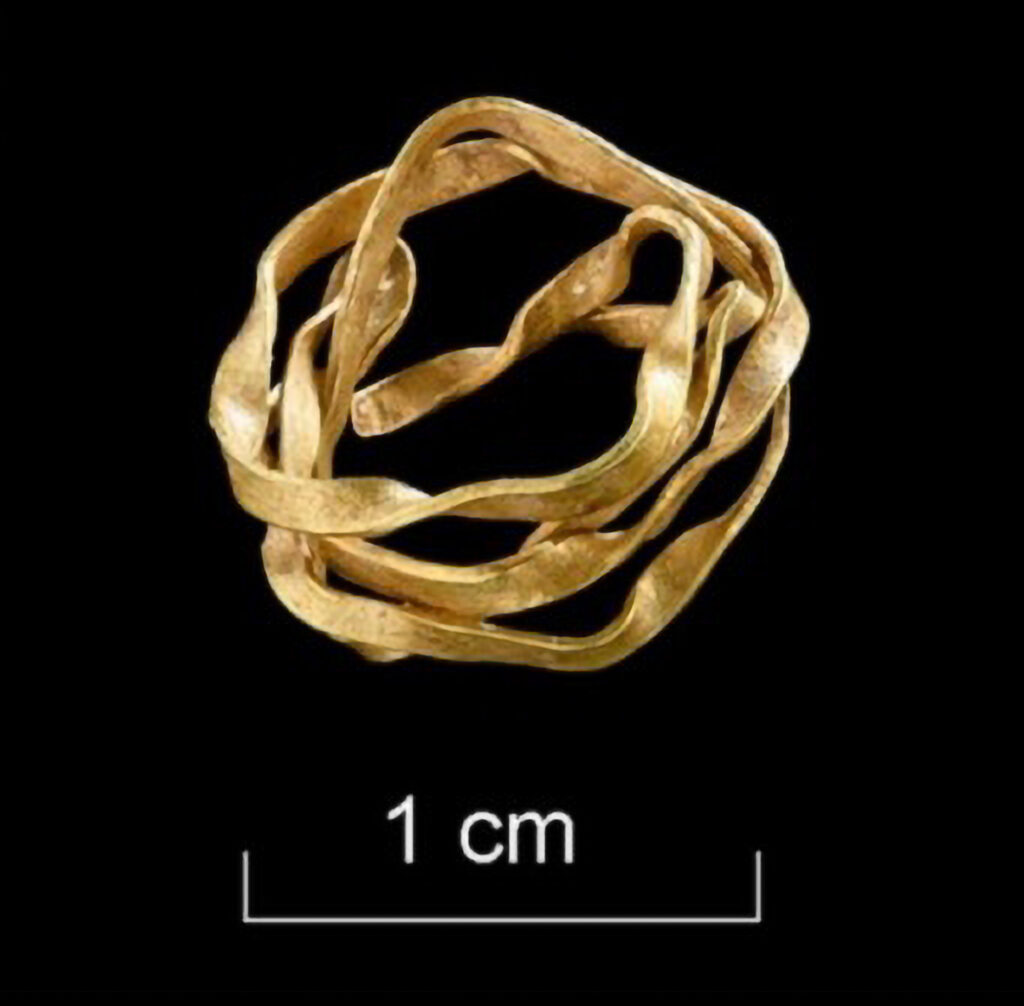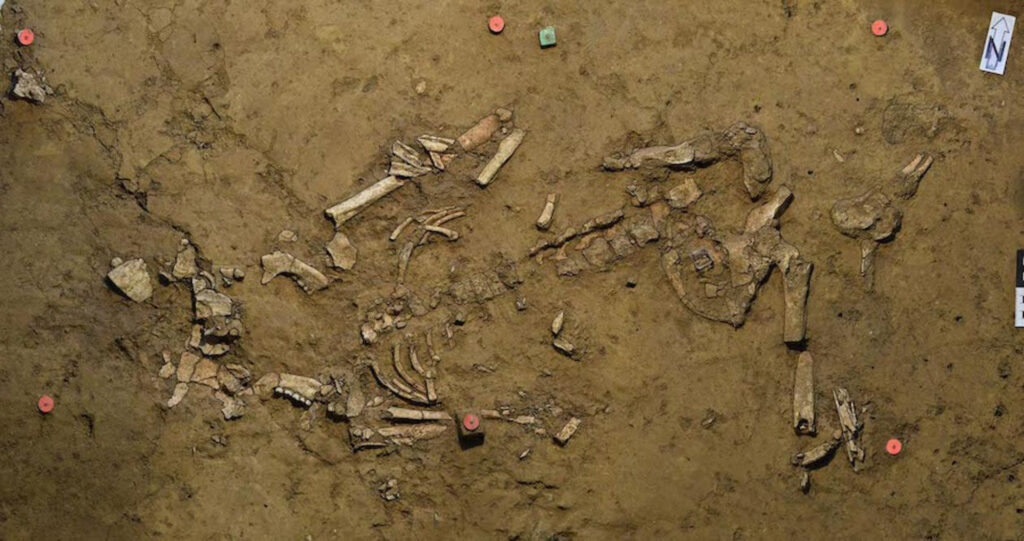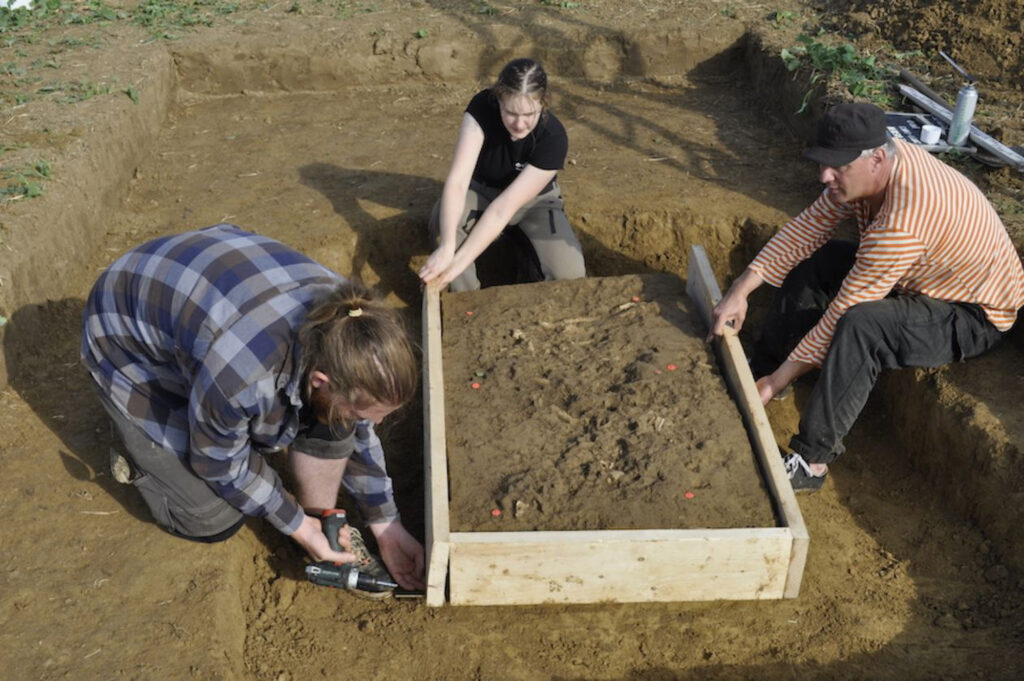Archaeologists Discover Almost Four Millenia Old Gold Ring From Cornwall In German Grave
An Early Bronze Age golden ring which was unearthed from a grave and is believed to originate from Cornwall is the oldest ever golden object discovered in southwestern Germany.
Archaeologists believe they found proof of prehistoric long-distance trade after they discovered a spiral ring made of golden wire in the Ammerbuch-Reusten municipality in Germany which they assume originates from the Carnon River area in Cornwall in England.
The object was discovered by scientists of the University of Tubingen and heritage officials from the state of Baden-Wurttemberg in an Early Bronze Age woman’s grave found in autumn 2020.

According to the research team, the object represents early evidence of far-reaching luxury trade of the people of that time since precious metal finds dating back to the Early Bronze Age are very rare in southwestern Germany.
In addition, the archeologists involved in the project believe the find is approximately 3,800 years old since radiocarbon dating proved the woman’s bones date back to between 1850 and 1700 BCE.
The dig out was led by Dr. Jorg Bofinger from the Baden-Wurttemberg State Office for Cultural Heritage Management located in the city of Esslingen in collaboration with Professor Raiko Krauss from the Institute of Prehistory and Medieval Archaeology at the University of Tubingen.

The excavation revealed that the buried woman was laying in a fetal position and facing south which is a typical burial arrangement of the late Neolithic period in Central Europe.
The spiral roll made out of golden wire was detected between the woman’s remains at hip height and according to the team of researchers it must have been a hair ornament, which indicated its owner was of high social status.
Furthermore, the object’s chemical composition revealed it’s not purely made of gold, but also contains 20 percent silver, less than two percent copper and traces of platinum and tin.

The pattern of these elements and the object’s natural gold-blend typical for gold drawn out from rivers points towards the Carnon river area in the British county of Cornwall and it indicates a clear reference to northwestern Europe.
In contrast, the previously known gold and precious metal finds in Europe came almost exclusively from deposits in southeastern Europe.
The research team reported that the ring confirms previous finds that gold jewellery production began in the fifth millennium BCE.

According to the professors, the ring represents evidence that western cultural groups increased their influence over central Europe in the first half of the second millennium BCE.
The woman’s grave was located near several other Early Bronze Age burials and is apparently connected with the prehistoric hilltop settlement on the nearby town of Kirchberg.



